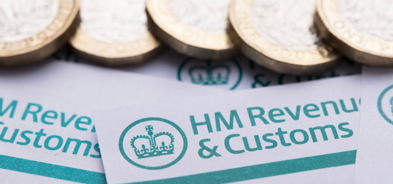5 Retirement planning tips, according to today’s retirees
Do you dream of retiring at 50 to sail around the world, finally write that novel, or take up a hobby you’ve always wanted to try? You’re not alone. But what can you do now to ensure a financially comfortable future? We surveyed over 1000 retirees to find out what retirement planning tips they wish they could give their younger selves. Here’s what they had to say…
Published on 12 Sep 20193 minute read

1. Make a monthly budget – and stick to it
Form good money habits now and you’ll reap the rewards further down the line – particularly when it comes to saving for retirement.
Whether this means only buying things you need rather than things you want, or moving some of your salary each month into a separate spending account, find a way to stay in control of your money that works for you – a third of the retirees we asked said they wish they had.
2. Tackle credit card debt
Perhaps unsurprisingly, 4 in 5 of today’s retirees believe it’s important to clear any credit card debt before retiring.
According to those we surveyed, the average age you should rid yourself of this debt is 33 years old, with a huge 47% concluding that credit cards are only good for people who don’t need them. And we couldn’t agree more.
Ultimately, if you can’t afford to pay it off, you might want to question whether you should be spending it in the first place – especially if you want to feel financially secure in retirement.
3. Invest your savings wisely
Start saving at 22 years old; that’s the average age that the retirees we surveyed suggested. But not all savings options are created equal. In fact, 15% of retirees would tell their younger selves to invest in stocks and shares, rather than a low interest savings account. When it comes to the best age to start investing, 30 is the average age they wish they’d begun.
Our tip? Have a mix of savings you can easily access and some long-term investments that you can’t – nearly half of today’s retirees agreed. Then, as your income grows, increase how much you save, not how much you spend, if you want a comfortable retirement.
It’s always important to pick your investments carefully and keep in mind that investing isn’t a get-rich-quick scheme. Remember, if it looks too good to be true, it probably is.
4. Don’t pay more tax than you need to; ISAs and self-invested pensions are a great way to save tax-free
The age for state pension for men and women in the UK is increasing from 65 to 66 this year, and is due to rise again to 67 between 2026 and 2028.
17% of retirees rely solely on their state pension, which is just £168.60 per week. With the average monthly expenditure of a retiree at £743.88 – including outgoings like grocery shopping, utility bills and rent or mortgage payments – this leaves them £13.28 out of pocket on average at the end of every month. No wonder then, that a private pension is a must for most of today’s retirees – 4 in 5 now have one.
Not only did 38% of those surveyed say they wish they could tell their younger selves to start a private pension, most would suggest doing so sooner rather than later; age 23 was deemed best, on average.
Don’t forget to take advantage of your workplace pension, too. With auto-enrolment, you’ll get the added benefit of employer contributions, too. If you can afford to contribute more than the minimum amount, then do so.
5. Pay off your mortgage by 50 years old
According to today’s retirees, this is the average age they would suggest the younger generation aim to make their last mortgage repayment. Their tips for a happy retirement? Buy your first home at 27, then move onto buying your ‘forever home’ at 40, ready to become mortgage-free at 50. Of course, in today’s world of sky-high house prices, buying your first home at 27 would be quite a stretch for most!
Ready to start your retirement planning?
Our award-winning Self-invested Personal Pension (SIPP) is a great place to start. It’s easy to set up and gives you the flexibility to invest monthly or through lump sums. You can choose from a wide range of investments and easily see how they’re performing whenever you want.
Find out more about SIPPs
SIPPs are not suitable for everyone. They may not be right for you if you don’t want to invest across different asset classes or don’t think you will make use of the investment choices available to you. Please contact us for guidance or advice if you are unsure.
Get insights and events via email
Receive the latest updates straight to your inbox.
You may also like…


Investing
What the Autumn Budget capital gains tax changes mean for investors

Investing



